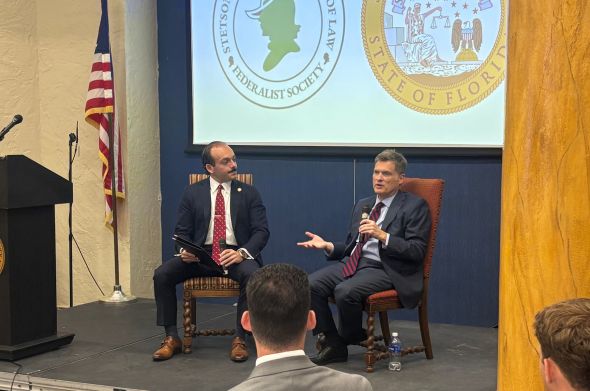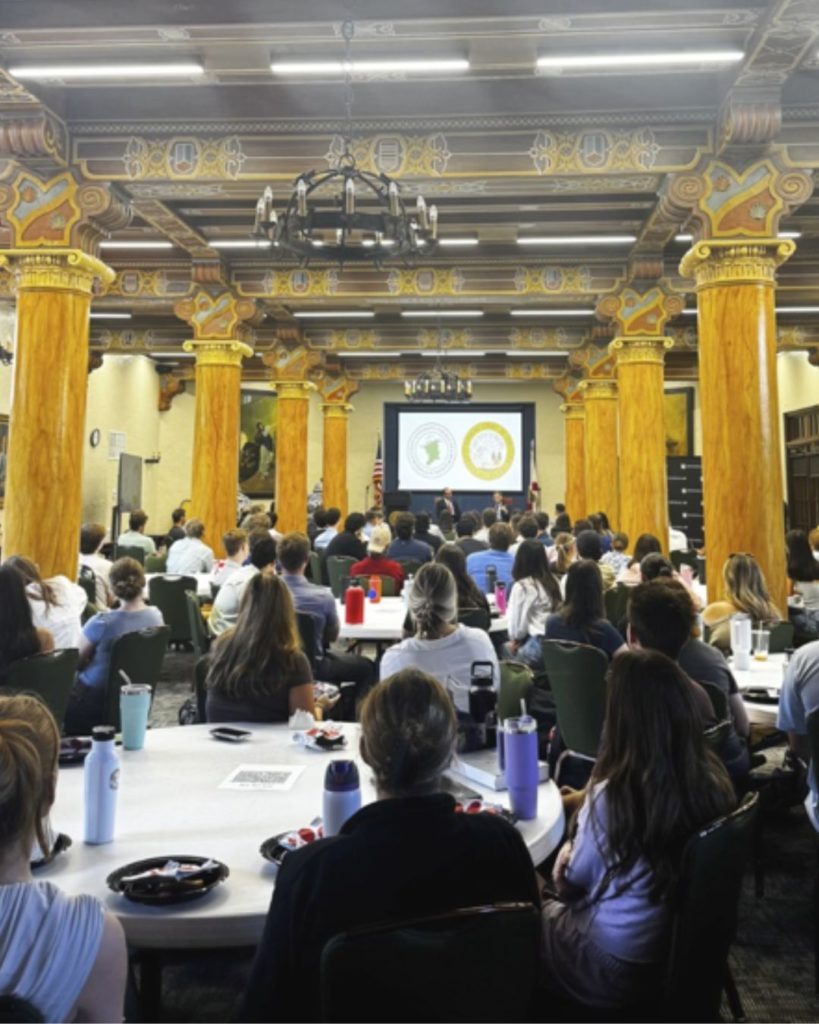FL Supreme Court Chief Justice Speaks at Stetson

Members of the Stetson Law community packed the Mann Lounge on Thursday, October 23 to hear Florida Supreme Court Chief Justice Carlos G. Muniz’s thoughts on everything from judicial philosophy to how to succeed in the legal profession.
The fireside chat-style event was organized by the Stetson Law chapter of the Federalist Society and moderated by Frank Giallourakis, the organization’s president. “This afternoon was not just a tremendous honor for our Federalist Society chapter to host Chief Justice Muniz, but a historic day for our beloved Stetson law,” Giallourakis said following the event. “Chief Justice Muniz graciously took the time to speak to a crowd of over 100 students, faculty members, and administrators about judicial philosophy, the judiciary’s role under the Constitution, trends in Florida precedent concerning statutory interpretation, and how my Stetson law colleagues and I can best prepare ourselves to achieve great success.”
On building a meaningful career

Chief Justice Muniz kicked off the conversation with his thoughts on how law students can realize their full professional potential.
One’s path is a combination of luck, merit, and relationships, he told the audience. Many opportunities happen because of positive impressions one gives his or her mentors and peers, and most people who find success want to pay it forward.
“Don’t be shy about asking people for help,” he said. “All of us have benefited from other people taking interest in us and helping us and my experience is that people want to be able to give back and help others who are coming along after them.”
Service & judicial philosophies
Muniz offered his thoughts on varying judicial philosophies such as originalism and textualism – and how judges’ relationship to the law differs from that of legal scholars.
He stressed that it is not the role of the judge to determine the outcome of a case based on their personal morals and opinions, but instead to subordinate one’s own views and will try to get the case right based on existing laws.
“There are lots of things judges don’t have control over. We don’t have control over what the law is. We don’t have control over the cases that come before us,” he said. “We do have control over how we treat people; whether we make sure that people have due process; whether they feel like judges came to the cases prepared and thoughtful. We really do try to promote that culture of service… The law is not just for judges. It’s for everybody.”
Organizers praised Chief Justice Muniz for his emphasis on shared values over the divisive rhetoric that can often dominate in conversations about law and policy.
“Chief Justice Muniz emphasized the importance of civility, careful study of the law, and a commitment to excellence in everything that we do not only as law students but practicing attorneys,” Giallourakis said. “We extend our sincerest gratitude to the administration for their steadfast support and look forward to carrying this momentum into our upcoming events.”
Learn more about Chief Justice Muniz.
Post date: Oct. 24, 2025
Media contact: Kate Bradshaw
[email protected] | 727-430-1580